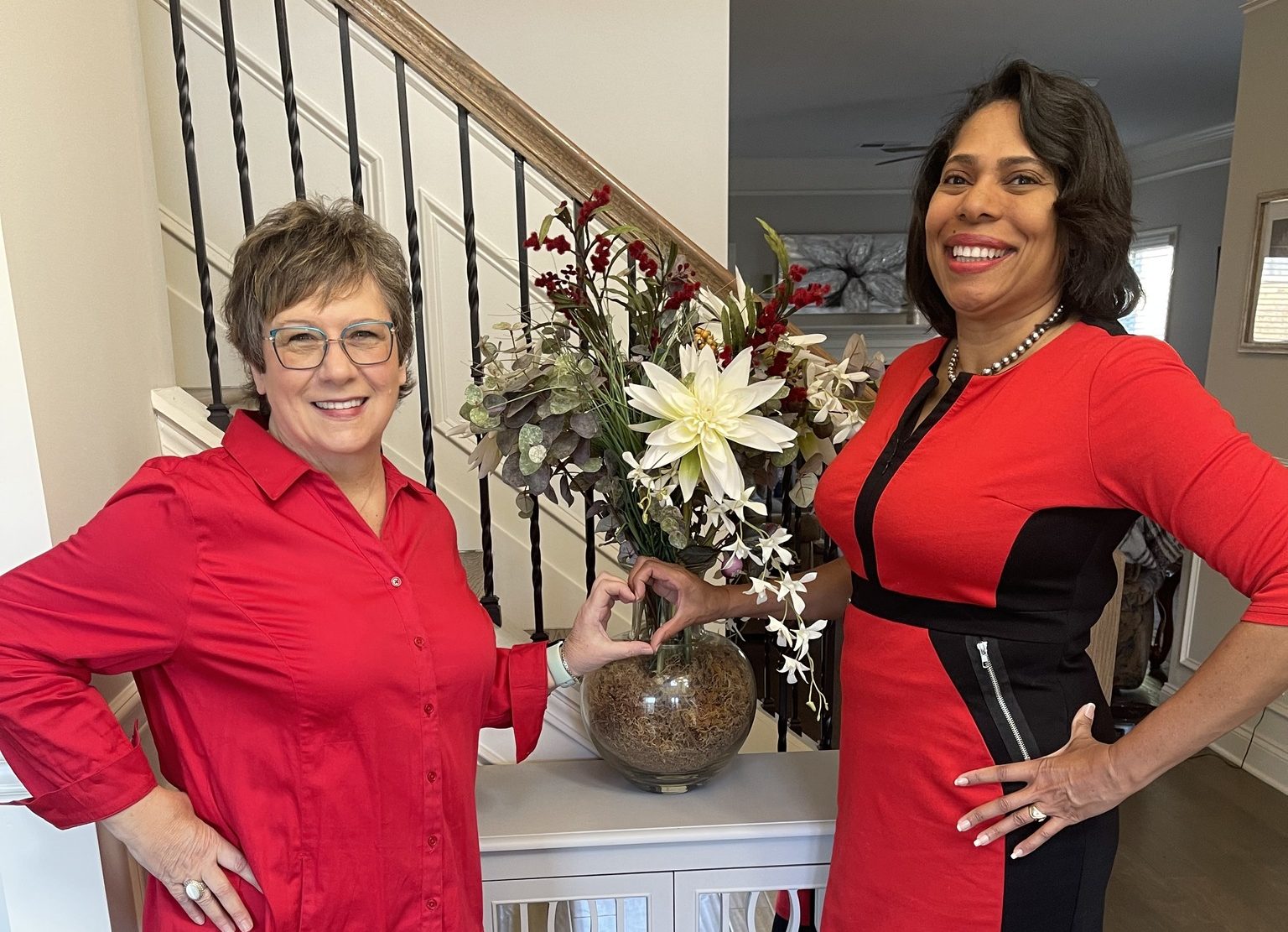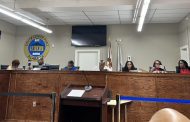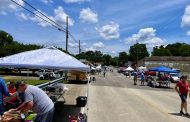By Crystal McGough, Editor
TRUSSVILLE – Residents of the Carrington Lakes community in Trussville will be hosting a walk for the American Heart Association in order to raise awareness and provide education about strokes, including how to prevent them and how to recognize the symptoms of a stroke.

Michele Self and Danika Hickman, M.D.
The Carrington Lakes Stroke Walk for the American Heart Association will take place Saturday, May 20, 2023, from 11 a.m. to 1 p.m., at 5659 Carrington Lakes Parkway.
This event was organized by neighbors Danika Hickman, M.D., and Michele Self, who are both stoke survivors. Hickman is a medically retired physician who recognized her symptoms thanks to her medical training. Self was a UAB employee at the time of her small stroke and had no idea what was happening, but she was lucky enough to make a complete recovery.
“I’m a spokesperson for the American Heart Association and this is something we’re doing to educate the community,” Hickman said. “We’re going to have the walk in Carrington. It’s going to be around the lake and it’s going to be a fundraiser, but you can just come out; there’s no charge for it.”
During the event, there will be food trucks available, and there will also be representatives from the American Heart Association providing educational literature, as well as CPR lessons and a station where attendees can get their blood pressure checked.
“We’ll have some music going, and the fun thing about the music is that the music is the same amount of beats that you’re supposed to perform CPR by,” Hickman said. “They have a special playlist. So, it’s a lot of educational things that are going to happen. It should be a fun event.”
M3 Performance and Physical Therapy will also be sponsoring this event, offering prizes and educational materials.
Hickman said her stroke happened about a year ago while she was at home watching an Alabama basketball game.
“All of a sudden, I could only see one half of the television screen,” she said. “I’m very thankful that it happened that way, that I wasn’t asleep when it happened, that I was watching television, so that I was aware what was going on.”
She called out to her daughter, who approached Hickman on her right side.
“I couldn’t see her,” Hickman said. “I was calling her name and she was like, ‘I’m standing right here,’ but I couldn’t see her. My son heard the commotion so he came downstairs and, thankfully, he came to the left of me and I could see him. At that time, I told them to call 911; that I was having a stroke. I thank the Lord that I did know the signs of a stroke, being a medical doctor.”
While her kids were calling 911, Hickman said she lost movement in her right arm and right leg.
“Thankfully, the ambulance came and they took me to UAB for a Code Stroke. They found out that I had a PFO, which is a hole in my heart that I had all of my life that was never diagnosed,” she said. “I’ve been living with this, functioning with this my whole entire life.”
Hickman had to have a procedure to close the hole in her heart, and since the stroke, has had to undergo physical therapy, speech therapy, occupational therapy, low vision therapy, driving therapy and driving rehab.
“I’m just very thankful for the position that I am in now,” she said. “Even before this happened – this is very ironic – I was a spokesperson and a blogger for the American Heart Association. I actually did their Go Red talk one year. Often times, I was having to give other people’s testimonies and tell their stories, but now I have my own story, which I never thought I would have. So, I’m sharing it as much as I can.”
Self’s stroke happened before she moved into Carrington Lakes and met her neighbor, Hickman.
“She said that she was at work and she started to have a headache and she couldn’t find her words,” Hickman said. “She went to the emergency room and it was a stroke.”
Hickman said that she and Self are hoping, if nothing else, that people walk away from this event remembering the acronym F.A.S.T., which stands for facial droop, arm weakness, speech difficulty, and time.
“It’s really important to recognize the symptoms of a stroke,” Hickman said. “What I learned in school is, ‘time is brain.’ That’s extremely important. Once you recognize it, you need to act upon it immediately. The longer you wait, the worse the stroke becomes, and there are also certain treatments that you can get, but you cannot get those treatments if it’s past a certain amount of time when you present to the hospital.”
The month of May is National Stroke Awareness Month, and Hickman and Self encourage members of the community to “come walk with us around one of our beautiful lakes” and “bring awareness to our community.”
For more information about the Carrington Lakes Stroke walk for The American Heart Association, visit their Facebook event.








